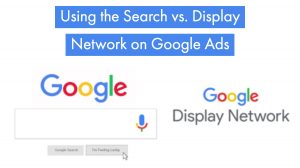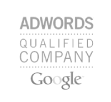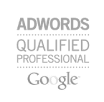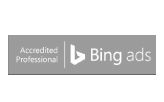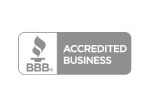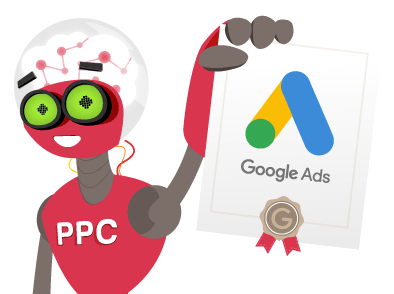PPC brand bidding is the practice of bidding on branded keywords— such as your competitors’ brand names. This Google Ads keyword bidding strategy aims to have your ads appear when users search for your competitors. The goal is to direct traffic away from your competitors and directly towards your site.
In this article, we’ll teach you when to bid on your competitor’s brand name in Google ads and how to develop a strong brand bidding strategy.
Is it legal to use your competitor’s name as a keyword? Can you bid on trademarked keywords?
Yes, it is legal to bind on your competitors’ names and trademark phrases as Google Ads keywords. Google’s current trademark policy states that: “in response to trademark owner complaints, we may restrict the use of trademarks in the ad text.”
When creating ads for search results pages for your competitors’ brand names and trademarks, it’s crucial that you do not include them in your ad copy. At best, you’ll be wasting your marketing budget on giving your competitors added publicity. And at worst, your marketing team could find themselves in the middle of a lawsuit over manipulative marketing techniques.
For example, if you write your competitor’s brand name in your ad headline, users may click on your ad thinking they are clicking on your competitor’s site. Not only is this marketing tactic frowned upon, but it’s also illegal in many countries.
When bidding on your competitors’ brand names as keywords, it’s imperative that you do not use Dynamic Keyword Insertion or any of your competitors’ brand names or trademarks in your headlines or ad copy.
What are the benefits of competitor brand name bidding?
High-Quality Traffic
According to Think With Google, 53% of shoppers say they always research before they buy to ensure they are making the best possible choice. Most of the clicks on your ads will be from search engine users looking to compare your products or services with your competitor’s.
While branded keywords may not drive a high number of clicks, users who do click are typically highly qualified leads. This makes it vital for your landing pages to be packed with valuable information about your business and include a clear call-to-action.
Increased Brand Exposure
According to a Google study, search ads can increase brand awareness by up to 80%! When your ad appears on competitors’ keywords, it increases the likelihood that search engine users remember your brand and interact with it in the future— even if they didn’t click on your ad.
If Google users are searching for your competitors, it means they’re in the market for the products or services your business provides. Bidding on your competitors’ keywords can help attract potential customers to your business. Plus, it’ll help establish your company as one of the most prominent names in your industry.
When should you bid on your competitor’s brand name?
If it’s financially-savvy for your business
Brand bidding can get pretty pricey, so it’s crucial that it’s done strategically. Campaigns that use competitors’ brand names as keywords will likely be your highest cost/conversion campaigns on Google Ads.
You’ll also want to avoid starting a bidding war with your competitors. Often businesses, especially large ones, will bid on their own branded keywords. The aim is to prevent competitors’ ads from appearing on searches for your business.
Because these keywords are hyper-relevant to their business, your competitors’ AdRank will likely be higher than yours. This means you’ll need to bid an even higher amount to compete— a strategy that’s sure to waste your money. If your competitors’ keywords get too expensive, switch to non-branded keywords with a lower CPC.
Once your business is well-established
Marketing experts suggest staying away from competitor name campaigns when your business is first starting out. If you’re a small business, it’s important to evaluate if this strategy is the most effective way to spend your marketing dollars.
As we said before, competitors’ names can be expensive keywords. If your company’s name does not have the same level of brand recognition as your competitor’s, users may feel less inclined to click on your ad.
Once your marketing team is experienced with Google Ads PPC advertising
Your business should have a well-developed PPC advertising strategy before delving into brand bidding. A competitor campaign is most beneficial when you have all your other marketing efforts running smoothly. Only bid on your competitor’s name after you have been running PPC for a while and have good ROI.
When you’re looking to increase traffic to your website
Bidding on branded keywords is an effective strategy if you’re looking to increase traffic to your website. It’s important to remember that the users who click on your ads may not be familiar with your business quite yet, so you’ll need to establish a connection and support them through the marketing funnel just as you would any other lead.
Often, users clicking on your ads are looking to compare your products or services to your competitors. Competitor brand name bidding ensures your brand stays top of mind when they’re ready to make the switch.
Suppose you think that bidding on your competitor’s branded keywords could be the right PPC advertising strategy for your business, start with a test campaign before going all in. It may be worth consulting a marketing agency to develop a profitable strategy that drives traffic and converts.

